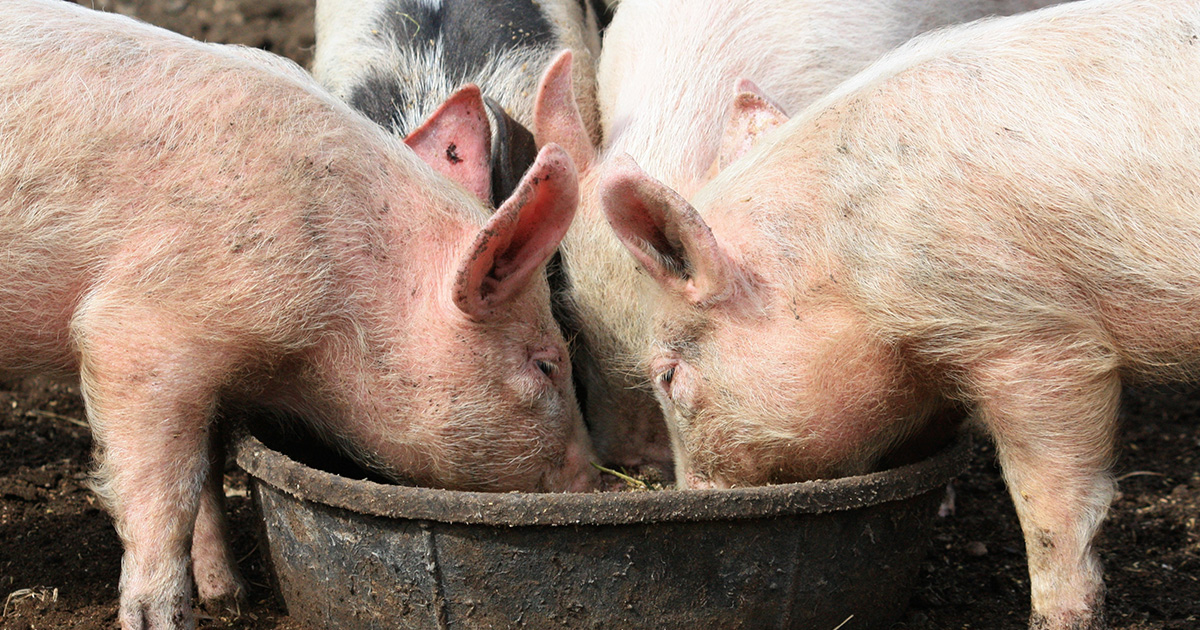Impact of Nutritional Strategies on Weaned Pigs’ Growth Performance and Systemic and Intestinal Health
A special issue of Veterinary Sciences (ISSN 2306-7381). This special issue belongs to the section "Nutritional and Metabolic Diseases in Veterinary Medicine".
Deadline for manuscript submissions: closed (12 May 2025) | Viewed by 12595

Special Issue Editors
Interests: pig nutrition; gut health; immunology; functional feed additives; weaning stress
Interests: animal science and technology; pig nutrition; poultry nutrition; microbiome; feed additives; gut health
Special Issues, Collections and Topics in MDPI journals
Special Issue Information
Dear Colleagues,
We are pleased to invite you to contribute to this Special Issue. There is growing interest in the nutritional modulation of growth performance, intestinal health and immunity in piglets to overcome weaning stress. Postweaning diarrhea leads to serious economic loss in the swine industry as it causes increased mortality and morbidity and reduced growth in surviving pigs. Nutritional strategies, such as providing pigs with feed that is low in protein or dietary fiber or that contains bioactive compounds with anti-inflammatory, antioxidative and anti-bacterial properties, can impact the systemic and intestinal health of weaned piglets and consequently improve their growth performance. The purpose of this Special Issue is to present current knowledge of and recent progress in the modulation of growth and health in weaned piglets using nutritional strategies and bioactive compounds, and to highlight how they regulate nutrient metabolism in the host. In this Special Issue, original research articles and reviews are welcome. Research areas may include (but are not limited to) the following:
- Antioxidant capacity;
- Bioactive compounds;
- Intestinal inflammation;
- Metabolites;
- Molecular nutrition;
- Nutritional strategies;
- Piglets;
- Systemic health;
- Weaning stress.
We look forward to receiving your contributions.
Dr. Xianren Jiang
Dr. Vera Perricone
Guest Editors
Manuscript Submission Information
Manuscripts should be submitted online at www.mdpi.com by registering and logging in to this website. Once you are registered, click here to go to the submission form. Manuscripts can be submitted until the deadline. All submissions that pass pre-check are peer-reviewed. Accepted papers will be published continuously in the journal (as soon as accepted) and will be listed together on the special issue website. Research articles, review articles as well as short communications are invited. For planned papers, a title and short abstract (about 250 words) can be sent to the Editorial Office for assessment.
Submitted manuscripts should not have been published previously, nor be under consideration for publication elsewhere (except conference proceedings papers). All manuscripts are thoroughly refereed through a single-blind peer-review process. A guide for authors and other relevant information for submission of manuscripts is available on the Instructions for Authors page. Veterinary Sciences is an international peer-reviewed open access monthly journal published by MDPI.
Please visit the Instructions for Authors page before submitting a manuscript. The Article Processing Charge (APC) for publication in this open access journal is 2100 CHF (Swiss Francs). Submitted papers should be well formatted and use good English. Authors may use MDPI's English editing service prior to publication or during author revisions.
Keywords
- antioxidant capacity
- bioactive compounds
- intestinal inflammation
- metabolites
- molecular nutrition
- nutritional strategies
- piglets
- systemic health
- weaning stress
Benefits of Publishing in a Special Issue
- Ease of navigation: Grouping papers by topic helps scholars navigate broad scope journals more efficiently.
- Greater discoverability: Special Issues support the reach and impact of scientific research. Articles in Special Issues are more discoverable and cited more frequently.
- Expansion of research network: Special Issues facilitate connections among authors, fostering scientific collaborations.
- External promotion: Articles in Special Issues are often promoted through the journal's social media, increasing their visibility.
- Reprint: MDPI Books provides the opportunity to republish successful Special Issues in book format, both online and in print.
Further information on MDPI's Special Issue policies can be found here.






